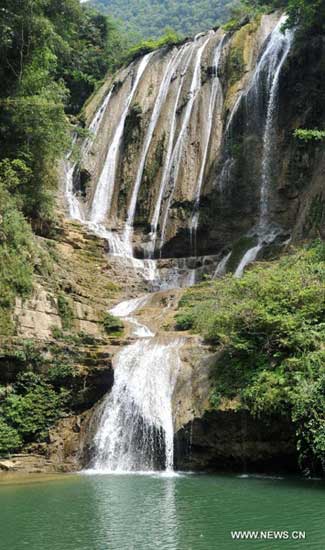The 38th session of the World Heritage Conference has concluded in Doha, Qatar. China has achieved fruitful results with three successful inscriptions.

Photo taken on July 18, 2013 shows the scenery of waterfalls in Niujiao Village under Maonan Autonomous County of Huaijiang in Hechi, south China's Guangxi Zhuang Autonomous Region. The World Heritage Committee on Monday inscribed an extension of South China Karst, a natural World Heritage Site since 2007, into the UNESCO's World Heritage List. (Xinhua/Lu Bo'an)
This year’s conference has passed 30 applications, with 26 new projects. China’s 2,400-year-old Grand Canal, a section of the ancient trade route of the Silk Road, and the extension of South China Karst were listed. So far, a total of 1,007 heritage sites are on the World Heritage List. And China has 47 World Heritage sites, the second highest number after Italy in the world.
The Chairperson, Qatar Princess Maya Sa, has called on all counties to protect world heritage, despite disputes and differences.
"From as far as east China to as far as USA,....we want to protect them no matter what the differences are," Maya Sa said.







